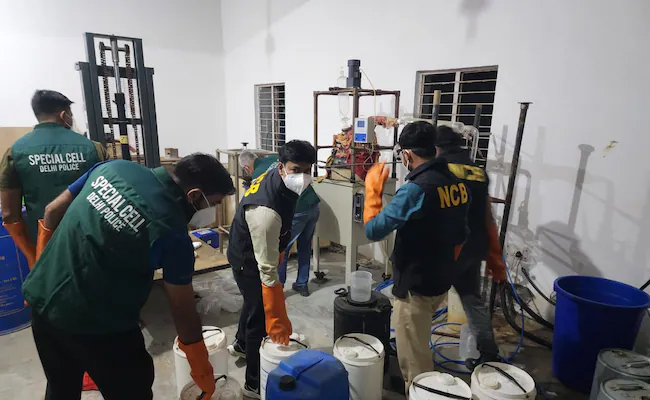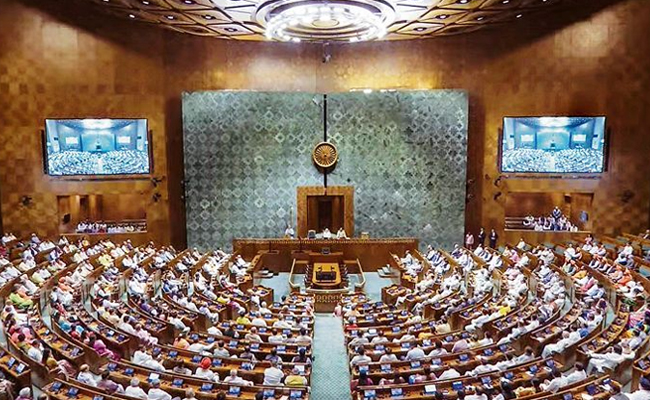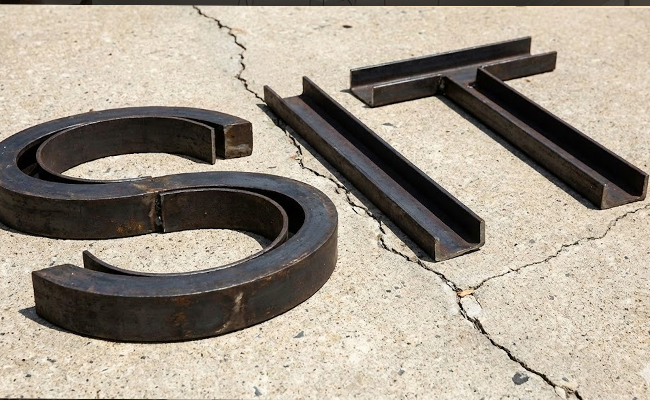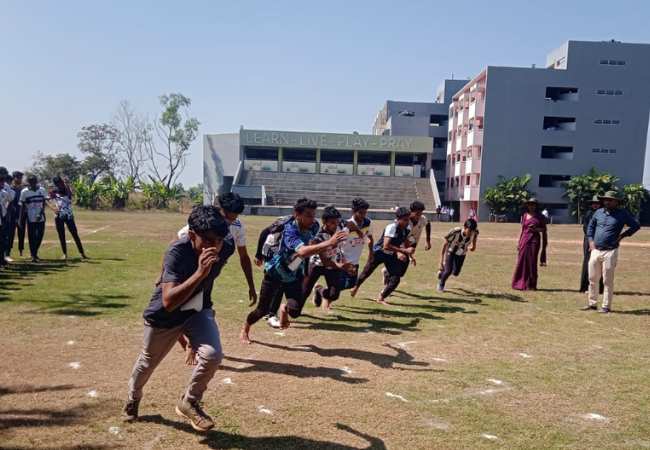New Delhi (PTI): A meth lab having links to a Mexican drug cartel was recently uncovered in Noida and five people, including a Tihar Jail warden and two Delhi-based businessmen, were arrested in connection with it, the NCB said on Tuesday.
In a statement, the Narcotics Control Bureau (NCB) said the lab was busted in the Kasna industrial area of Uttar Pradesh's Gautam Buddh Nagar district on October 25 and about 95 kg of methamphetamine, a synthetic drug, was found on the premises both in solid and liquid forms.
The Special Dell of the Delhi Police was also roped in by the federal anti-narcotics agency as "the drug network has footprints across several places in the National Capital Region".
During a preliminary enquiry, it has come out that a Delhi-based businessman, found at the factory during the raid, along with the Tihar Jail warden, was "instrumental" in establishing the illegal factory, procuring chemicals required for the drugs from various sources and importing the machinery, NCB Deputy Director General (Operations) Gyaneshwar Singh said.
He said a Mumbai-based chemist was roped in by these people to manufacture the drug. The quality of the drug was tested by a Mexican cartel member residing in Delhi, Singh added.
The official said these four people were produced before a special Narcotic Drugs and Psychotropic Substances (NDPS) Act court here on October 27 which sent them to three-day NCB custody.
An "important member" of the syndicate and "close associate" of the Delhi-based businessman was apprehended in follow-up action from Delhi's Rajouri Garden area, he said, adding that this person was being produced before a court for his custody.
The Delhi businessman, as per the NCB, was earlier arrested by the Department of Revenue Intelligence (DRI) in a separate NDPS case and had been lodged in Tihar Jail, where he came in contact with the warden who later became his "accomplice".
The agency said the Mexican drug cartel identified in this case is CJNG -- Cartel De Jalisco Nueva Generacion.
Chemicals like acetone, sodium hydroxide, methylene chloride, premium-grade ethanol, toluene, red phosphorus, ethyl acetate and imported machinery for manufacturing synthetic drugs were also seized from the clandestine lab, the NCB said.
DDG Singh said forward and backward linkages as well as financial trail and assets generated by the accused through this illegal drug trafficking are being investigated now.
The agency claims to have busted at least five clandestine labs this year so far in Gandhinagar and Amreli in Gujarat, Jodhpur and Sirohi in Rajasthan and Bhopal, Madhya Pradesh.
In the Bhopal case, a joint operation was undertaken by the NCB and the Gujarat ATS at the Bagroda industrial estate and about 907 kg of mephedrone and 7,000 kg of some other chemicals, along with machinery, were seized.
The NCB believes that considering the low cost of production of synthetic drugs like methamphetamine and mephedrone, the drug mafia is "increasingly shifting" to setting up such clandestine labs in industrial areas so that local law enforcement agencies are not alerted by the routine transportation of material and machinery, waste generated from the laboratories and toxic fumes coming out of chimneys during chemical processing.
Let the Truth be known. If you read VB and like VB, please be a VB Supporter and Help us deliver the Truth to one and all.
New Delhi (PTI): Vice President C P Radhakrishnan on Saturday led Parliamentarians in paying floral tributes to those who died fending off terrorists who attacked the Parliament House in 2001.
On the 24th anniversary of the attack, Prime Minister Narendra Modi and Radhakrishnan, who is also the Rajya Sabha Chair, were among the first to offer tributes.
A brief function is held outside the now old Parliament building (Samvidhan Sadan) every December 13 to mark the day.
CISF personnel presented a salute or "samman guard" at the venue, after which a moment of silence was observed to mark the anniversary. Till 2023, the CRPF used to offer 'salami shastra' (present arms).
Congress leader Sonia Gandhi, Leader of the Opposition in the Lok Sabha Rahul Gandhi, and his sister Priyanka Gandhi Vadra, a senior party leader, were also present at the event. Union ministers Kiren Rijiju, Jitendra Singh and Arjun Ram Meghwal also lined up to offer flower petals at the photographs of the personnel who went down foiling the attack.
Lok Sabha Speaker Om Birla is in Latur to attend the funeral of former speaker of the Lower House of Parliament and ex-Union minister Shivraj Patil.
The attack was carried out by five armed terrorists, but personnel from the now former Parliament Security Service, CRPF and Delhi Police foiled the attack, with no terrorist being able to enter the building.
Six Delhi Police personnel, two Parliament Security Service personnel, a gardener and a TV video journalist were killed in the attack. All five terrorists were gunned down in the forecourt of the then Parliament building.





